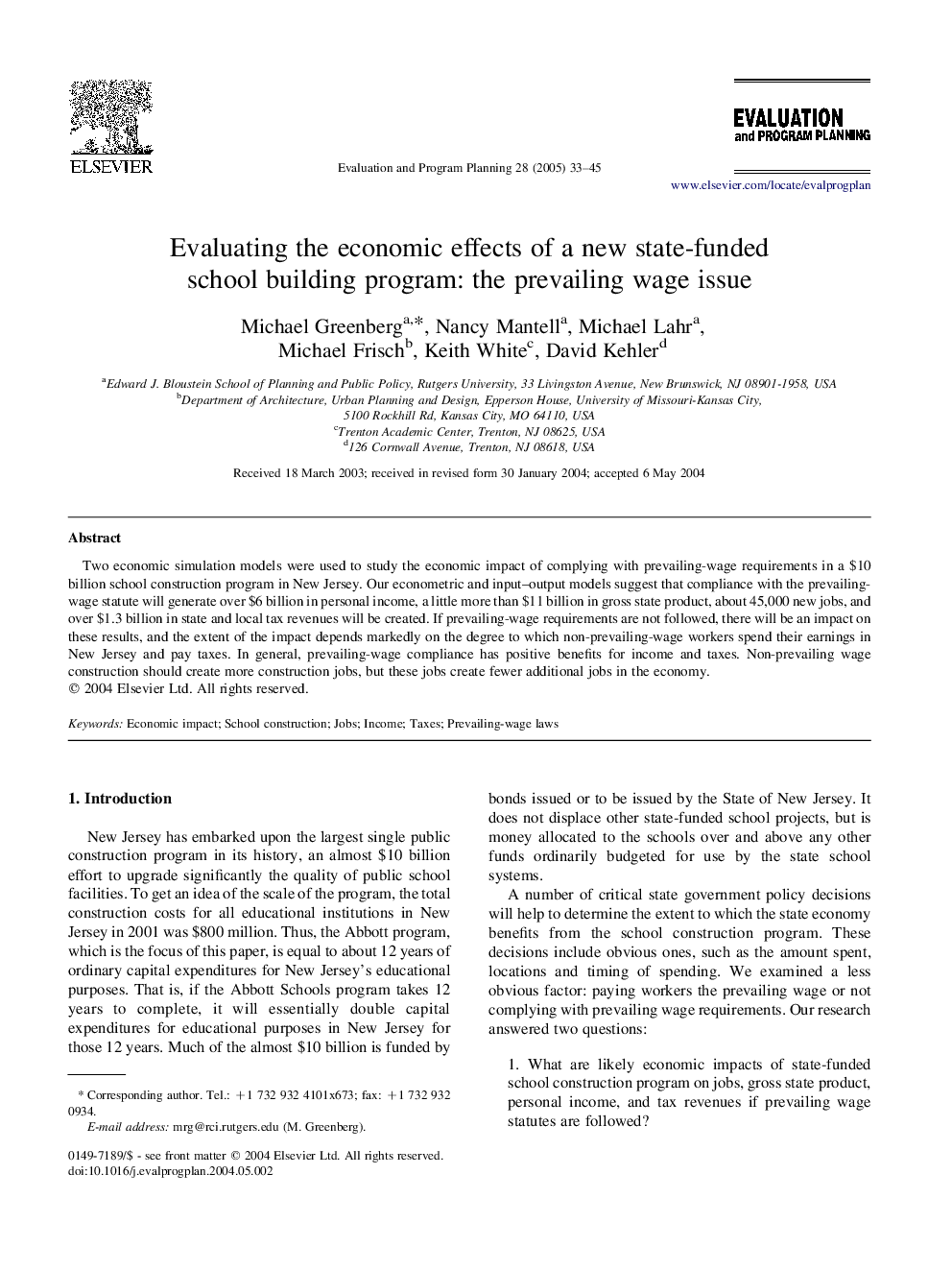| Article ID | Journal | Published Year | Pages | File Type |
|---|---|---|---|---|
| 10300581 | Evaluation and Program Planning | 2005 | 13 Pages |
Abstract
Two economic simulation models were used to study the economic impact of complying with prevailing-wage requirements in a $10 billion school construction program in New Jersey. Our econometric and input-output models suggest that compliance with the prevailing-wage statute will generate over $6 billion in personal income, a little more than $11 billion in gross state product, about 45,000 new jobs, and over $1.3 billion in state and local tax revenues will be created. If prevailing-wage requirements are not followed, there will be an impact on these results, and the extent of the impact depends markedly on the degree to which non-prevailing-wage workers spend their earnings in New Jersey and pay taxes. In general, prevailing-wage compliance has positive benefits for income and taxes. Non-prevailing wage construction should create more construction jobs, but these jobs create fewer additional jobs in the economy.
Keywords
Related Topics
Health Sciences
Medicine and Dentistry
Public Health and Health Policy
Authors
Michael Greenberg, Nancy Mantell, Michael Lahr, Michael Frisch, Keith White, David Kehler,
